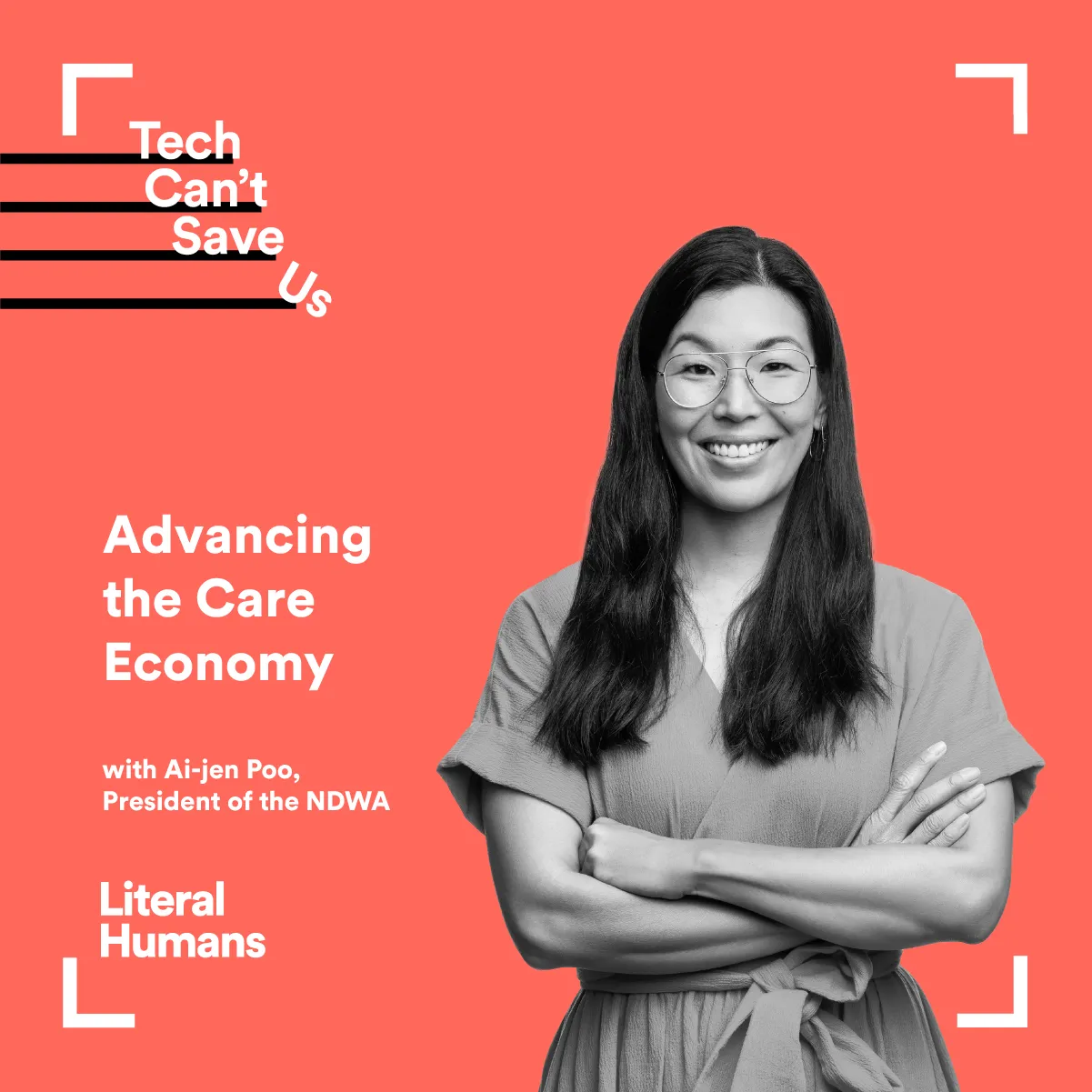Featuring Ai-Jen Poo, President of the National Domestic Worker’s Alliance and Director of Caring Across Generations
This week, Paul and Will are joined by Ai-Jen Poo, President of the National Domestic Worker’s Alliance and Director of Caring Across Generations, in discussing how technology can be utilized to improve health, safety, and quality of life for care workers and domestic workers across the world.
We start our conversation by looking at a piece on domestic worker health and safety protection, which revealed that in one study, 51% of all survey respondents had been pressured by their employer to work in hazardous conditions. Furthermore, approximately 85% of respondents reported workplace injuries that caused chronic back, shoulder, arm, and leg pain.
Highlighting how technology can improve health and safety for domestic workers and all workers facing these sorts of conditions, Ai-Jen says, “When we think about how technology in this period has been utilized, it’s really been about designing for convenience and efficiency for a consumer. It hasn’t been designed to enhance the quality of work and life for workers. And so, if it were deployed in that direction, miracles could happen.”
Ai-jen also shares how she wishes that the tech space would put a bit more focus on addressing the safety issues care workers face in the workplace. “There’s so much talent that’s being deployed towards a little bit better food delivery app experience. And I just think we need to deploy that talent, that creativity, that design logic, that sense and spirit of innovation to how we make life better for everyday people,” she explains.
We then explore the general underappreciation of caregivers and domestic workers a bit more, before diving into what governments, countries, and organizations can do to combat this, as well as why there is almost societal neglect of such important roles. Stressing the importance of care roles, Ai-jen talks about why Harvard economist Larry Katz refers to care jobs as ‘triple dignity jobs.’ “[It’s] because they’ve enabled dignity for the workers, the people who rely on this care, and family members who are just stressed out and pressed dealing with this issue,” Ai-jen tells us.
As our conversation progresses, we discuss what can be done to prevent worker mistreatment, and Ai-jen tells us about her work with the NDWA. When asked about her personal journey that led to her positions at NDWA and Caring Across Generations, Ai-jen admits she has no idea how she got there, but she expresses her excitement to be a part of all the meaningful work.
The conversation concludes with a discussion of Ai-jen’s biggest industry frustrations and an enlightening lighting round in which we get to know her on a more fun, cheeky level.
To find out more about the National Domestic Workers Alliance, and Caring Across Generations visit the websites:
- National Domestic Workers Alliance: https://www.domesticworkers.org/
- Caring Across Generations: https://caringacross.org/



